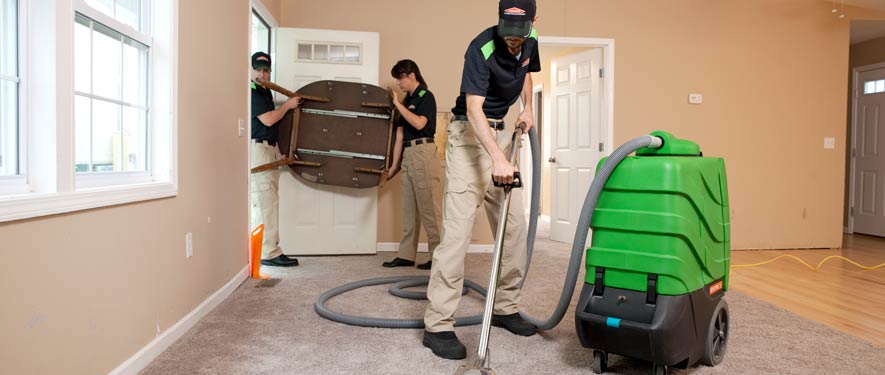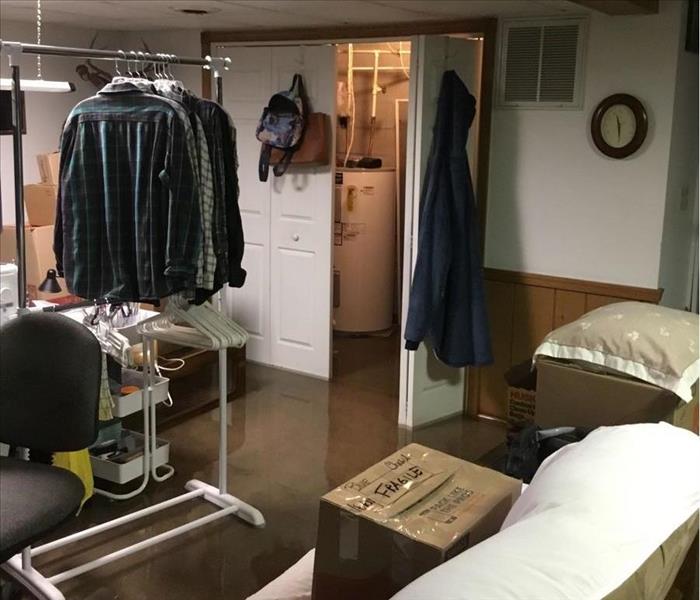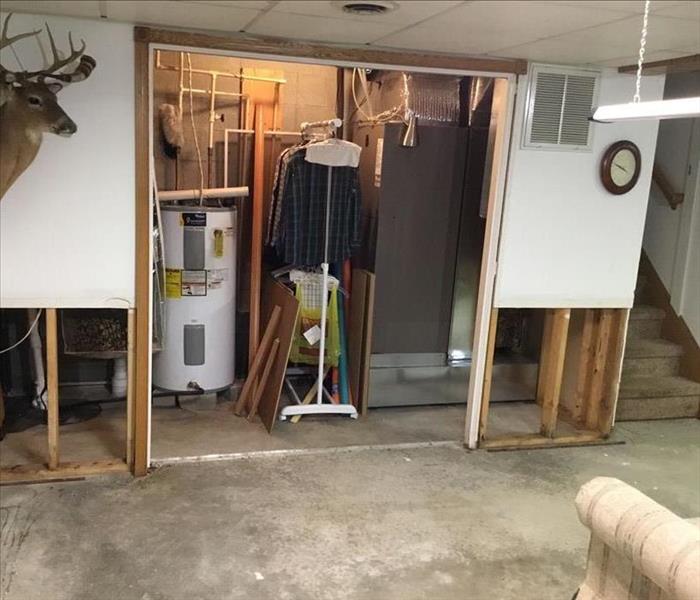
Step 3: Water Removal / Water Extraction
The water removal process begins almost immediately and removes most of the water from the floor. We use powerful pumps and vacuum units to quickly remove hundreds or thousands gallons of water from your property. Most common used is a tuck mount extractor running a hose into the building pulling the water and storing into the vans holding tank. Holding up to 80 gallons per fill. With that we have a variety of wands, weighted assisted extractors for the wettest jobs. During storm season with flooded basements we also have submersible pumps for those deep water jobs to pull a large quantity of water outside quickly. Learn more: https://www.SERVPROchambersburg.com/before-after-photos/water-damage-restoration
Move-Out / Pack-Out
If your home requires extensive restoration or cleaning, SERVPRO of Chambersburg can conduct an organized, efficient move-out to protect your belongings from further damage.
- Move-Out Service
Emergency Water Removal
Our highly trained technicians will begin the water removal process almost immediately. Depending on the amount of water, we may use powerful submersible pumps in addition to industrial strength, wet/dry vacuums. Removing most of the water helps reduce drying time and helps prevent secondary water damage and mold and bacterial growth.
- Remove Excess Water
- Use Submersible Pumps and Industrial Wet/Dry Vacuums
Inspect the Carpet Pad and Carpet
We inspect the carpet and pad and determine if they should be removed to protect the subfloor.
- Inspect Carpet Pad and Remove If Needed
- Inspect Carpet and Remove If Needed
Water Removal Equipment
- Moisture detectors, hygrometers, and other meters measure the extent of moisture saturation.
- Infrared cameras may be used to find “hidden” water behind walls and ceilings.
- Submersible and gas-powered pumps are used for continuous pumping of high-level water.
- Truck-mounted and portable extraction units perform efficient water removal.






 24/7 Emergency Service
24/7 Emergency Service




